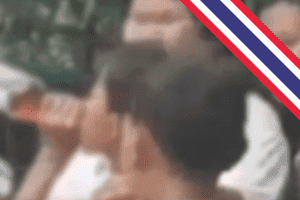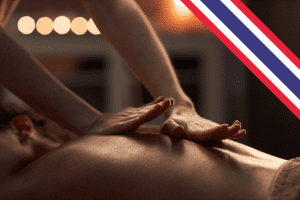What is coaching about? Being an instructor? A cheerleader? A programme-writer? Here’s a definition taken from the dictionary:
Definition of coach
1: to go in a coach
2: to instruct, direct, or prompt as a coach
1: to train intensively (as by instruction and demonstration)
2: to act as coach of
Not entirely well-defined but we get the idea that a coach is someone who provides guidance and direction to someone else who is either a student, an athlete or a willing learner. Within the context of sport, coaching can be defined as the consistent application of integrated professional, interpersonal, and intrapersonal knowledge to improve athletes’ competence, confidence, connection and character (Cote & Gilbert, 2009).
Coaching is multi-faceted; there are many components to coaching and what defines a coach. In fact, everyone has subconscious expectations of a coach that fall in line with what I’d just mentioned. The first thing that pops into our heads when we consider coaching would be to look for someone who is a professional in a specific field, who is able to help us achieve greater results and maximise our potential. This is likewise, outside of powerlifting, and even outside of sport.
Wait, what about technique? Programming? I believe a coach is someone who will help us get to where we need to be. A coach is not someone who ‘gives a programme’. He/she is not just someone who ‘fixes our technique’ and ‘solves our weaknesses’. So what do we really look for in a coach?
Professional Knowledge
We hope to find someone who is knowledgeable – an expert in the theory of our craft. What can a Math teacher teach, if he/she does not understand the concept of addition and subtraction? What can an economist advise if he/she does not understand the simple laws of supply and demand?
Knowledge drives coaching – it gives weight to what a coach preaches and reinforces concepts that are taught. This requires thorough understanding of the human anatomy (which should always be the case for any profession that deals with the human body and performance), biomechanics, kinematics (motion of objects), kinetics (forces that influence movement) and understanding basic laws of physics that everything in the universe is subject to. And no, being able to share what someone else posted on Instagram without fully understanding what it is does not make one a coach, especially if you have absolutely no idea what it’s about. It honestly doesn’t really make you any better than your elderly relative forwarding a WhatsApp message on pH22 dandelions.
Most problems I see in lifting are easily solved with application of simple science we grew up learning. Social media likes to make things more complicated than they seem and glamourise solutions and approaches. Unfortunately, these elementary concepts fly right past us because we don’t usually pay attention to them, and this is where the coach comes in – a coach makes sense of the difficulties we face and organises these complexities into solvable problems. Yes, if you haven’t realised what I’m trying to say, I’m saying that the coach should be there to show you how you can approach the problem, not just straight up solve it for you. This encourages thought and problem-solving. However, this doesn’t mean your coach can just sit back and tell you to go do it yourself without lifting a finger either. With science-based knowledge, an effective coach should be able to guide and point you in the right direction to solve the problems you face, together with you. To be capable of problem-solving and independent critical-thinking greatly enhances your competence and confidence, and the decision-making skills that come along with it will no doubt have a positive influence on your character-development.
Interpersonal Knowledge
With that being said, we want someone who communicates well with us. Communication is key, and I’m sure you’ve heard this enough times with regards to any relationship you have/will have in your entire life. Be it with friends, family, significant others, colleagues, or even people you dislike, you learn to show respect and co-exist regardless of differences, because papa and mama taught you well.
Amazing coaches, even teachers and mentors, are great at communication. The feedback a coach provides is of great value to his/her student. Specific and timely feedback structures our learning and helps us refine our understanding and execution. The ability to communicate allows a coach to articulate what he/she knows and filter the most complicated concepts down to simple cues and explanations that you can understand and relate to. As a great meme/quote once said, “if you can’t explain a concept to a 6-year old, you probably don’t understand it well enough”. Nobody cares if you have the ultimate solution to fixing back pain if you can’t talk about it coherently. Neither does anyone pay attention to the teacher in the class that rambles on about stuff you can’t relate to.
Of course… If someone’s good at talking and selling themselves regardless of actual knowledge, they might just get away with saying anything anyway (enter the salesman). But then again, how long can one keep a facade? Information and knowledge moves quickly these days, and if one’s keeping up a facade, it’s not gonna last long. The only way a coach can continue to be effective and be relevant is to improve him/herself in every aspect imaginable and constantly find ways to educate himself.
And that, is just one direction of this coach-student relationship. Communicating also involves, to a large degree, empathy. Not only do you want a person who enunciates him/herself well, a coach would like to be understood too. For problems to be solved, they must have context and meaning. And to have a grasp of your context, coaches need to be able to understand your thought processes, feelings and circumstances. Gone are the days of militant, top-down styles of traditional coaching – to improve athletes’ competence, confidence, connection and character, a coach must understand where the athlete is coming from. Communication and empathy builds trust – this trust strengthens the relationship between the teacher and the student, and reinforces the buy-in from the learner. Of course, there will come a time where the coach does not have the answers to all the questions you have, and the coach must recognise this and not attempt to falsely interpret problems or prescribe solutions outside of his/her limited bank of knowledge. The coach must know his/her own limits, and know where to look for the right solution and information required. The coach needs to be able to humble him/herself. After all, how coaches conduct themselves can be reflected in their students’ demeanors.
Intrapersonal Knowledge
We hope that a good coach is a conscientious individual capable of introspection and self-reflection, and seeks to improve him/herself indefinitely. A coach is not all-knowing, nor is he/she the smartest authority in the room. He/she is a fallible human being, and knowing that, should strive to improve him/herself through the course of time. A personal notion I have is that a coach is as good as his/her most inexperienced student. Or in the case of powerlifting, a coach is only as good as his/her ‘weakest’ lifter. If a coach starts to show signs of ‘pseudo-omniscience’ and egomania, telling you that he/she has all the answers, it’s probably a good time to back away. In the first place, if we’re the smartest person in the room, we’re probably in the wrong room. True ignorance is assuming that one knows everything there is to know. Assuming our personal or collective opinion as a universal truth is perhaps one of the greatest fallacies that coaches, especially more experienced ones, easily commit.
There will always be new studies and findings, reinforcing existing knowledge, bringing about new information, or even resurfacing old artifacts and wisdoms that people used to think were ineffective and irrelevant. To allow oneself to stagnate and decay is probably inexcusable for any profession. In that same vein, I would think that a decent coach is willing to admit his/her own shortcomings and mistakes, and listen to what his/her students have to share. Since knowledge requires context, and context requires perspective, there will always be something worth learning from someone who may or may not be better than you. Often, for such modesty and humility to be nurtured, one needs introspection.
Reflection is the cornerstone of an evolving coach. It gives him/her space to consider potential opportunities for learning and development to achieve greater heights of coaching ability. The road to self-actualisation is long and arduous for everyone, coach and student alike. On this path, perhaps one of the few things to ponder is what lies beyond the coaching I have defined thus far.
Beyond the Coach
While self-development is a critical concept in the makings of a coach, the coach should also strive to nurture his/her students and inculcate the same intrinsic desire for self-improvement. In essence, the role of a coach is to not just provide a service to his/her students, but to also ensure that one day, they will be better than him/her. There is a Chinese proverb, “青出于蓝, 而胜于蓝”, where the indigo blue dye is derived from the indigo plant, and yet is bluer than the plant itself. Through the wisdom of teaching, the student surpasses the teacher. The disciple surpasses the master.


I hope that with this article, I have at least left you thinking about what a coach really is and what his/her duties and obligations are. Is the sole purpose of a coach to train an athlete to become better in every possible way? To mentor a new generation of coaches so that wisdom can be built upon and shared infinitely? Or maybe even inspire someone to excel in other components of their lives so they can pay it forward? What is a coach to you?
Further questions? Feel free to contact us at [email protected].
This article and commentary first appeared on ENSO Powerlifting, on May 24, 2020, originally written by Jonus Ong.
Jonus Ong is an absolute nerd who enjoys reviewing instant ramen and optimizing his hamster’s welfare. He is currently pursuing his second degree at SIT as a physiotherapist. He is also the Head Coach of Ronin Strength Co. and the Director for Coaching Development & Athlete Development with Powerlifting Singapore. Jonus has been in the scene since 2013 and has coached since 2014.











